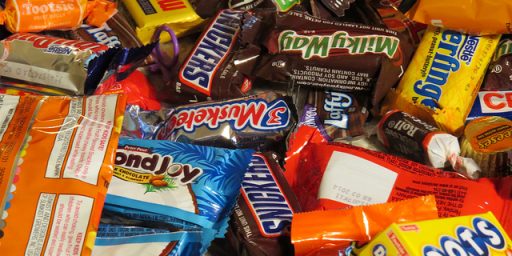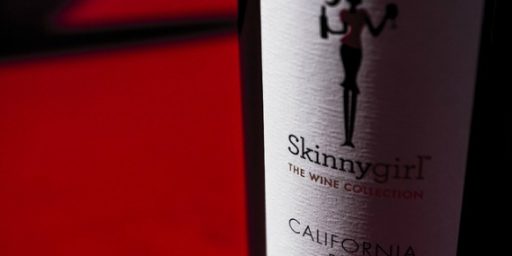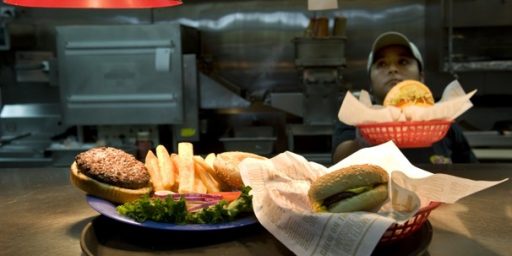Obesity: Nanny State Solution
Ezra Klein enjoys cooking and endorses “Naked Chef” Jamie Oliver’s notion that we’d be a healthier society if we cooked our meals at home rather than eating so much high calorie fare at chain restaurants. Still, he notes,
The problem is that the evidence suggests meals aren’t driving the rise in obesity — snacks are. A 2003 paper by economists David Cutler, Ed Glaeser and Jesse Shapiro looked at an array of different ways to measure caloric intake, and found that most meals aren’t getting much bigger. Dinner, in fact, might be getting a bit smaller. The big increase in caloric intake actually came between meals. In 1977, Americans reported eating about 186 calories outside of mealtimes. By 1994, that had rocketed to 346 calories. It’s likely even higher now. That difference alone is enough to explain the changes in our national waistline. And it won’t go away if we begin cooking dinners but still are purchasing 20-ounce bottles of Coke at the office.
Matt Yglesias agrees and argues that we should be “cultivating cultural taboos against prepared food,” by which he means prepackaged items ranging from sodas to chips to candy bars to microwave burritos. But, since we all know that these things are “bad” for us if consumed more than occasionally, that’s going to be hard. We eat this junk because it’s convenient, tasty, and cheap — not because we think it’s nutritious.
Evidence indicates that you could modestly improve public health and raise a nice chunk of change with a soda tax. Presumably something similar would apply to taxing chips and candy and so forth. You could fund a grapes-promotion program with the money. Or, you know, a robust national network of free clinics at which people could receive basic health care treatment and nutritional advice.
Who is it that isn’t aware that grapes are better for you than Snickers bars and Doritos? We don’t need a grape-promotion program, we need grapes to be instantly and cheaply available in the same way that chips and candy bars are. That’s pretty hard to do, given the relative perishability of said items. And, frankly, people are still likely to prefer a Snickers to a bunch of grapes in between meetings.
Taxes on sodas and snack foods might indeed promote healthier eating. But only by artificially raising prices and making it harder for poor people to eat what they want. And it’s not as if they’re going to instead decide to have a boneless chicken breast wrap and some Evian; they’ll just be a little hungrier and less happy. (Snickers, I’m reliably informed, really satisfies.) The net result will be more misery for the least well off. And, of course, less freedom.
UPDATE (Dave Schuler)
The work of anthropologists and archaeologists, especially Robert and Linda Braidwood, has increasingly demonstrated that our species has preferentially sought out the food source with the highest level of fat in our environment for, essentially, as long as we’ve been a species. Policies based on changing that in the near term whether through advertising, social pressure, or taxation are doomed to failure. We’re just not built that way.
Update (Steve Verdon):
The thing about this issue that interests me is its connection to the health care debate. I’ve discussed before how using life expectancy as a measure of the efficacy of a countries health care system is a dubious measure. This highlights why. Is obesity bad for health outcomes? Yes. But is it something the medical industry can do much about? No. This is a behavioral issue that impacts things like health outcomes and life expectancy.






